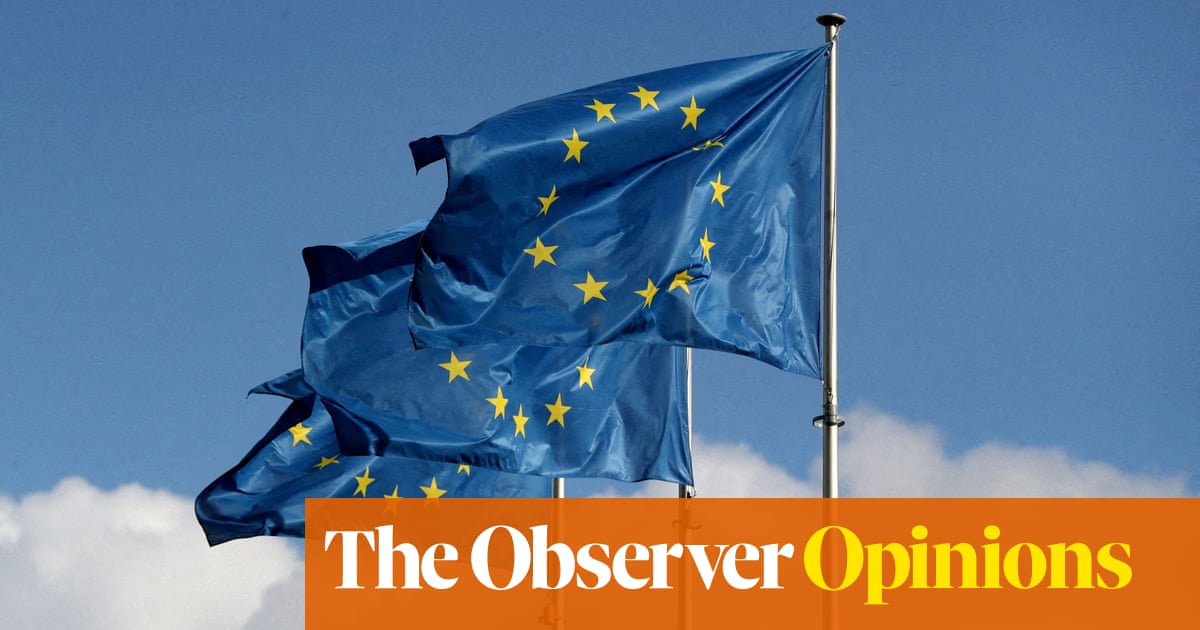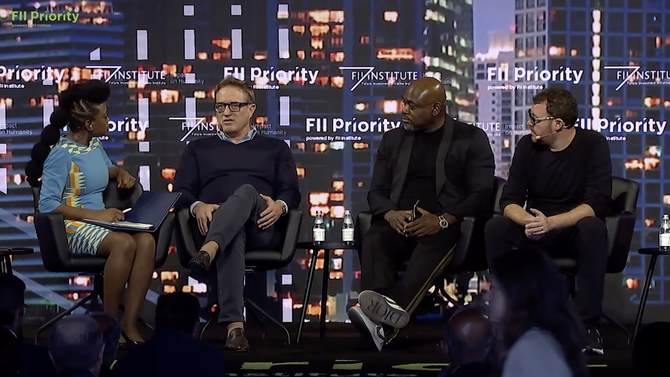
Democrats fear Joe Biden is sleepwalking to disaster in a November rematch with Donald Trump. Tories level similar criticism at dozy Rishi Sunak as Labour dreams of an autumn landslide. But for a truly world-beating slumber party, EU leaders take the bedtime biscuit.
The way it’s going, 2024 could turn into a nightmare for the 27-country bloc – an all-time annus horribilis. A daunting slew of international and internal challenges is coming to a head. Is the EU ready to meet them? Definitely not.
Take the crisis in the Red Sea. Iran-backed Houthi militants have been attacking shipping there since the Israel-Hamas war began. Citing threats to global trade and free navigation, the US and the UK struck back this month in Operation Prosperity Guardian – on their own.
The EU has an important stake in this fight. About 40% of its Asia and Middle East trade moves via Suez. But only the Netherlands provided hands-on assistance. Germany offered support – in a written statement. France, Italy and Spain ducked out. The excuse in Brussels is that the EU plans to launch its own Red Sea mission. Yet despite an obvious need for urgency as Houthi attacks continue, foreign ministers have put off a decision until 19 February. The good news is that Belgium may send a frigate.
This sorry saga exposes some familiar EU singularities: ambivalence about following America’s lead, fear of getting into a war, divided counsels and, in this case, worry about siding with Israel. Snoozing at the tiller, Europe is again failing to pair its self-interest and aspirations as a global actor with timely, concrete, joined-up action.
The Gaza war has exploded another illusion ahead of this week’s pivotal EU summit. Governments believe the conflict, and regional escalation, threaten their vital interests. As Israel’s largest trading partner, they think the EU has leverage. All support a two-state solution. But when Josep Borrell, EU foreign policy chief, outlined a 10-point peace plan for Palestine last week, his VIP guest, Israel Katz, Israel’s foreign minister, ignored it. “Which are the other solutions they [the Israelis] have in mind?” Borrell fumed. “To make all the Palestinians leave? To kill them?” He was left muttering darkly about unspecified “consequences”.
Europe’s bottomless capacity for punching below its weight is damaging Ukraine, where two years on from its invasion, Russia appears to be slowly gaining the upper hand. As the summit approaches, Hungary’s Viktor Orbán, Moscow’s Trojan donkey, continues to block a €50bn financial package for Kyiv.
The failure of some EU countries, notably France, to supply more and better arms, as US deliveries dry up, is also harming Ukraine’s chances – and consequentially, Europe’s hopes of defending its borders from future Russian aggression. That’s especially pertinent given Trump’s prospective return to the White House a year from now. Like a deer frozen in the headlights, Europe seems paralysed by the fast-approaching orange bulldozer. This time around, Trump may fulfil his threat to pull the plug on Nato. What then for collective European security?
Trump’s resurrection “would endanger European interests but Europe is not investing in mitigating the risks,” warned Ian Bond, of the Centre for European Reform. Defence, transatlantic economic relations and Trump’s disdain for the rules-based international order were looming problem areas.
“Most European leaders are still not being honest with their populations about the strategic situation in which Europe finds itself. Russia is increasingly putting its economy on a war footing,” Bond wrote. This helps explain calls in the UK to mobilise a “citizen army” and prepare for war.
There has been much talk in Europe in recent years about developing common defences. But French president Emmanuel Macron’s blueprints for EU “strategic autonomy” and “military sovereignty” have largely gathered dust. US-led Nato remains Europe’s first and last hope.
Fearful of Trump’s second coming, Manfred Weber, leader of the European People’s party in the European parliament, proposes an EU-wide nuclear umbrella based around France’s force de frappe. “Regardless of who is elected in America, Europe must be able to stand on its own in terms of foreign policy and be able to defend itself independently,” he said.
For Judy Dempsey, of Carnegie Europe, the geopolitical dangers facing the EU in 2024 are global – and exacerbated by the dithering of its wealthiest member. Germany’s chancellor, Olaf Scholz, “is giving no political or strategic leadership to a Europe that is ill-prepared for a possible rupture of the transatlantic relationship,” Dempsey wrote.
“Similarly, neither Germany nor Europe is prepared to withstand the growing influence of regimes that challenge the traditional prominence of the west” – a reference to China, a big trade partner and bigger potential threat. “Europe’s way of life, anchored in democracy, human rights, and security, is on borrowed time.”
Germany is also a flashpoint in the main internal political challenge confronting the EU – the rise of the far right, which Scholz and tens of thousands of German street demonstrators decry as an existential threat to liberal democracy. In France, anti-EU sentiment is being cynically exploited by the right to fuel current farm protests.
New polling by the European Council on Foreign Relations suggests populist “anti-European” parties, principally of the right, will make large gains in EU and national elections this year. Migration, broken budgets, energy and climate are other explosive common denominator issues.
Can the EU survive a dangerous, defining year? It will probably muddle through. But the sort of strategic leadership and vision offered by Jacques Delors, the legendary Eurocrat who died last month, is evidently lacking – and urgently required.
Europe is the meat in the sandwich being cut by hostile authoritarians around the world. If it doesn’t wake up and shape up, it’s lunch.
Simon Tisdall is the Observer’s foreign affairs commentator












